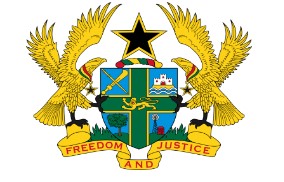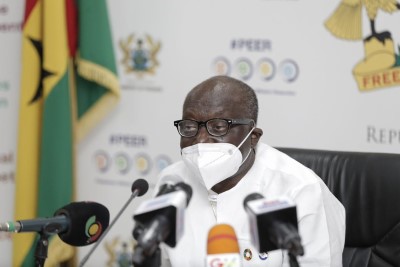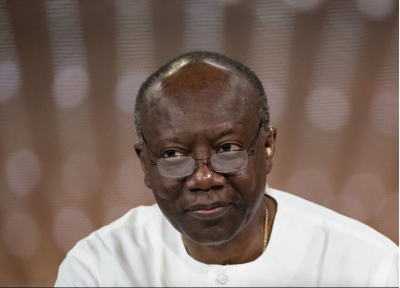Development Bank of Ghana
Development Bank Ghana (DBG) is a critically important vehicle that has been carefully designed to provide, on a professional and financially sustainable basis, long-term finance at affordable rates to Ghana’s private sector enterprises to assist them in driving the national economic transformational agenda under Ghana Beyond Aid (GBA). DBG will be key in driving the CARES / Obaatanpa Programme
It is intended to be a model institution that supports the financial system to play its role in supporting the private sector to expand and create jobs.
DBG will help address two important constraints in our financial system, namely the lack of long-term capital, and the lack of adequate funding to the productive sectors of the economy.
DBG is a key pillar in our efforts to recover from the effects of the COVID-19 pandemic and quickly resume our economic transformation path as articulated in the Ghana CARES Obantanpa Programme. It is intended to be a model institution that supports the financial system to play its role in supporting the private sector to expand and create jobs.
DBG will help address two important constraints in our financial system, namely the lack of long-term capital, and the lack of adequate funding to the productive sectors of the economy.
Currently less than 15% of loans given out by banks are for 5 years or longer, making investment in long gestation project very difficult for our private sector.Agriculture and manufacturing sector receive around 4% and 8% respectively of banks loans compared to their shares in GDP and employment and potential for driving economic transformation.
Primary Focus Areas of DBG will be:
- Agribusiness, with a focus on off-farm value-chain activities
- Manufacturing
- ICT, software development and allied services, including Business-Process Outsourcing, and Tourism
- Boosting homeownership through affordable and longer tenure Mortgage Finance
- Infrastructure financing
DBG is not similar to the existing commercial banks that we have in the country. It is a non-deposit taking Wholesale bank. DBG will neither give retail nor direct business loans, like the former Bank for Housing and Construction, NIB, ADB, and the likes. It will rather provide funds to the existing commercial banks and other qualifying financial institutions to provide long-term lending and other innovative products that are presently lacking in the system. The bank will therefore complement and strengthen the operations of existing financial institutions.
It is important to state that since independence, this is the first time we are establishing a bank of this nature. It is a model along the lines of the German Development Bank – KfW, which played a pivotal role in the post-World War II reconstruction and transformation of the German economy.
Through DBG, Government will be able to further strengthen its support to the private sector to spearhead economic growth and transformation. DBG is an instrument to ensure long term finance to the private sector on a sustainable basis.
Government therefore expects DBG to be a financially sustainable institution that is able to raise long term funds from the domestic and international capital markets and from international financial institutions, based on its own balance sheet. To this end, Government is taking pains to ensure that DBG has a strong governance structure with professional and independent Board and Management. A process to select the Board and Management on a competitive basis is currently underway.
Work on the DBG started in 2018 with a Task Force of industry experts established by Government to recommend the best approach to establish a modern and dynamic development bank. Based on the recommendation of the Task Force, Government decided to set up DBG as a new non-deposit-taking-wholesale-bank under the Companies Act.
DBG, as a wholesale and non-deposit taking bank, requires no branch network and minimal staff. It will therefore be very costly – financially and in terms of closure of branches and employment loss – to try to convert ADB or NIB into a viable modern development bank.
The advantage we foresee of a greenfield approach is that one gets to start from a clean slate, with no legacy financial, governance and other issues. This allows us to focus on the future and move straight into setting up DBG equipped with modern and sound design principles.
The greenfield approach also has the potential to attract more private and international institutional capital as we have witnessed with EIB’s €170 million facility. It also the Government's plan to attract other shareholders, both domestic and international, so as to increase DBG’s capital base and also reduce the government’s share over time.
Ladies and gentlemen of the media, despite the unsuccessful experience in Ghana and in many African countries, development banks have been instrumental in driving economic transformation elsewhere. Many industrialized countries have development banks or similar institutions to provide investment finance to their SMEs or to encourage investment in new and promising, but risky economic activities.
Examples of Transformational Development Banks include, Japan Development Bank, Korean Development Bank, Development Bank Singapore, Brazilian Development Bank, KfW (Germany) and Development Bank Nigeria.
As I indicated in my last press briefing on 9th May, 2021, the bank will be launched in July 2021. We are aiming to establish DBG with an initial Government of Ghana equity contribution of $250 million of which US$200 million has already been paid. We aim to increase DBG’s lending capacity by raising additional funds from domestic and international private and institutional investors. The World Bank is providing US$250 million, KfW is providing EUR 46.5 million, we are also in discussions with the AfDB to be a key partner in the establishment of the bank.
DBG will pay back the loans that Government has taken on its behalf from the international financial institutions. Government therefore sees its contribution to DBG as investments that should be paid back; all the more reason we will insist on the professional management of the bank.
As I indicated in my last press briefing on 9th May, 2021, the bank will be launched in July 2021 as part of one of the core pillars of the GHC100 billion Ghana CARES program which aims to achieve the following:
- Economic transformation that requires that entrepreneurs in key productive sectors have access to long-term finance at affordable interest rates. Analysis done as part of the background technical work for establishing DBG found that in Ghana, agriculture and manufacturing receive around 4 and 8 percent also respectively in bank lending, and only about 15 percent of bank loans exceed 5 years in tenure.
- The launch of DBG this year, will address fundamental financing constraints. It will provide loans with tenures of up to 15 years, with a focus on key transformational sectors—agribusiness, manufacturing, ITC, tourism, and housing.
- DBG will be a wholesale bank lending to commercial banks and to non-bank financial institutions such as Venture Capital and Private Equity on infrastructure focus to on-lend to SMEs and provide equity capital.
- DBG will also operate Partial Guarantee windows, and also a Digital Platform to facilitate SME financing at a derisked rate to reduce interest rates.
- Government, learning from our national experience and also from global experiences regarding development banks, is determined to set up DBG so that it stands the test of time and supports Ghana’s economic transformation on a long-term basis. To this end, Government is taking extraordinary measures to ensure that DBG is well capitalized, and it has a strong and independent governance structure—including competitive international recruitment of its Board and Senior Management--to enable it to be run professionally and on a financially sustainable basis without recurrent recourse to the public purse.
- DBG should in short order be able to use its balance sheet support to leverage private sector funds in international markets.





